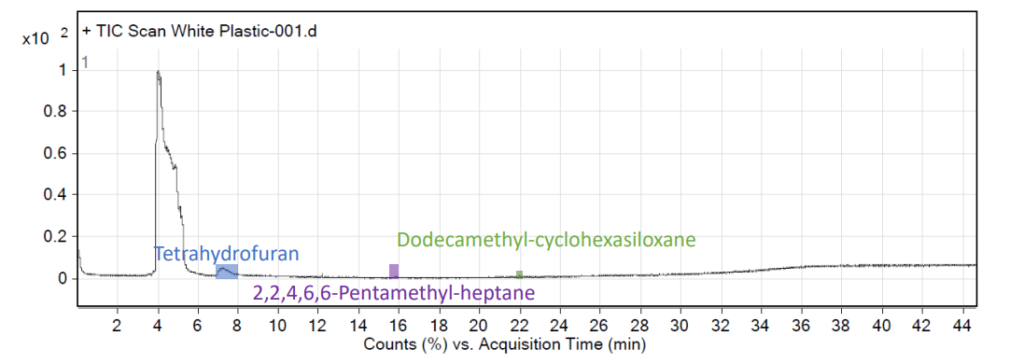 Gas Chromatography Mass Spectrometry (GC-MS)
Gas Chromatography Mass Spectrometry (GC-MS)
Overview
The Gas Chromatography Mass Spectrometer (GC-MS) is a powerful fusion of two distinct analytical techniques: Gas Chromatography (GC) and Mass Spectrometry (MS). GC is a method employed to meticulously separate complex mixtures into their individual components, relying on polarity interactions between the mobile phase and the stationary phase.
In contrast, Mass Spectrometry (MS) steps in to identify and quantify these separated molecules. Furthermore, MS offers a deeper layer of insight, providing invaluable information about the structural and chemical properties of the molecules under examination.
The synergy between GC and MS within the GC-MS instrument makes it an indispensable tool for a wide range of applications, including environmental analysis, pharmaceutical research, and forensic investigations. It empowers scientists and analysts to unravel the composition of complex samples, aiding in the discovery, characterization, and understanding of various substances.
To read more on AFM, you can read our Key Tech brochure.
Services
- Separate complex chemical mixtures and quantify analytes.
- Identify unknown materials (peaks)
- Determine trace levels of contamination.
Pricing
- Expedited service: Starts from $900 per sample with 2-3 days turnaround.
- Regular service: Starts from $450 per sample with 7 – 10 days turnaround.
- For a comprehensive overview of our pricing structure, please log in to the Bee Portal.
Equipment
- Operation temperature: (RT+4) ~ 450°C
- Max ramp time: 120°C/min
- Available detectors:
- Flame ionization detector (FID)
- Thermal conductivity detector (TCD)
- Micro-electron capture detector (micro-ECD)
- Nitrogen-phosphorus detector (NPD)
- Single- or dual- wavelength flame photometric detector (FPD)
- Mass selective detector (MSD) – 5972 (economy) & 5973

FAQ
A: GC-MS has many applications including quality control of consumer products (detection of trace level organic molecules and hazardous materials), it is typically used on a volatile compound, such as phenols (BPA) or fatty acids.
A: Samples need to be able to heat to the gaseous state to be able to use GC-MS.
A: Minimum of 50ul is typically needed.
A: No, recovery of the sample is not possible. As this is a destructive analysis.
A: GC-MS analysis is an advanced analytical technique that combines Gas Chromatography (GC) and Mass Spectrometry (MS). It works by first separating compounds within a sample based on their chemical properties in the GC system and then identifying and quantifying these compounds through mass spectrometry. The GC system separates the compounds, and the MS system measures their mass and produces mass spectra.
A: GC-MS is versatile and can analyze a wide range of samples, including environmental samples (e.g., air, water, soil), pharmaceuticals, food and beverages, forensic evidence, industrial chemicals, and more. It is particularly useful for detecting and quantifying volatile and semi-volatile compounds.
A: GC-MS provides detailed information about the chemical composition of a sample. It can identify individual compounds within a mixture and determine their concentrations. Additionally, it can elucidate the structure of compounds and help detect trace levels of impurities or contaminants.
A: GC-MS is essential in analytical chemistry because it offers high specificity, sensitivity, and selectivity. It can identify compounds even in complex mixtures, making it invaluable in fields such as environmental analysis, pharmaceuticals, and forensics.
A: The advantages of GC-MS include its ability to identify a wide range of compounds, quantify compounds with high precision, detect trace levels of substances, analyze complex mixtures, and provide structural information about compounds.
A: At Outermost Technology, we offer GC-MS analysis services to meet your analytical needs. Our experienced team and state-of-the-art equipment ensure precise and reliable chemical analysis for various applications. Simply contact us to discuss your specific requirements and project goals.
A: While GC-MS is primarily used for organic compound analysis, it may not be the best choice for trace element analysis. For trace elemental analysis, other techniques like ICP-MS (Inductively Coupled Plasma Mass Spectrometry) are typically more suitable.
